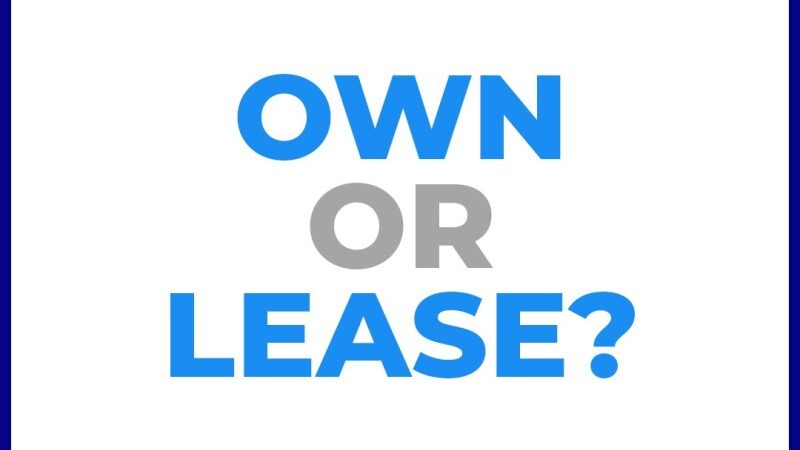For home solar, ownership is usually better, but it depends.
For a typical single-family home (2 bed / 2 baths), installing solar PV can be a sizeable investment to pay for upfront or take a loan out for. A solar lease or power purchase agreement (PPA), or what are commonly referred to as ‘Third-party owned’ (TPO) options can be beneficial in some instances. As is the case with any high-value home upgrade, understanding your own situation is a good place to start. Here are some things to consider:
1. Financial
Liquidity is key
If you have the money lying around to invest in solar, or if you are able to access a reasonably-priced loan and the effective ‘cost’ of your money is lower than what solar can offer, then you should consider paying for solar outright or taking out a loan.
Let’s unpack this … If you’re working with a seasoned installer, you should receive a 25-year ‘Cash Flow Table‘ which takes into account your upfront payment or loan numbers (as the case may be), dollar savings on your energy bill, tax benefits, and any other incentives that might accrue to you. The simplest way to understand these cash flow tables is to look at your net cash flow at the end of 25 years. Note that this final number will vary based on whether it is a full-cash payment or a loan. With a loan, down-payment amount, interest rates and loan tenures will affect the final figure. In any case, this final figure is what you will use as a point for comparison.
Now, solar is considered a low-risk investment. Rarely do solar PV systems break down or need service. So, the appropriate metric to compare the net 25-year figure is against another low-risk investment. Say a term deposit or bond instrument. If you were to invest in a bond, the same amount that you would pay to own solar, what is the value of the investment after 25 years? This is not hard to calculate. The difference in the net value of your bond and the net value of solar PV will help you decide if solar is worth owning.
In the case of a lease or a PPA, the financial costs and benefits of ownership are to the account of the third party offering you the lease or PPA. Moreover, some deals require an annual escalation in the price paid the solar provider. And if you study the 25-year cash flow table for a lease or a PPA, you will see, given the liquidity, it is not the financially prudent approach to going solar.
So, third-party-owned (TPO) solar is a better option when there is a lack of liquidity and the savings being offered by the TPO company are significant in the longer term.
2. Maintenance
Solar PV systems are comprised of three main components:
- Solar panels: The panel captures the sun’s rays and converts photons to electrons
- Inverter(s): This converts the panels’ DC output to grid-compliant AC power
- Racking: The structure that is used to attach the solar panels to a roof
Every panel, inverter and racking company is different, and their products may vary in quality and performance but suffice it to say that reputed solar manufacturers build their components for extreme conditions (PV panels, in particular) and durability.
Besides the components, a critical aspect of the solar PV system is the quality and durability of the installation itself.
If you own the system, and all well-informed about how to buy solar components and services, there is a better chance of controlling not only the brand and quality of the components used, and also the quality of installation done.
There are two main areas of concern with respect to solar PV maintenance.
- Structural: This has to do with how the racking system has been attached to the roof.
Typically, the main cause for concern for any homeowner is “What if my roof leaks?” When going solar with a lease or a PPA, the liability of any potential roof leak can be passed on to the TPO-provider. However, this problem can be mitigated by working with a seasoned solar PV installer. One that has roofing professionals with strong credentials, liability insurance, and a long-standing reputation in the community. - Electrical: These might be breakdowns in the panel, the inverter or the wiring
On the electric side, most PV systems come with diagnostics that let you know when a string or a specific solar panel within an array is not functioning at its potential. Also, most panels and inverters have long-term warranties. Doing your homework, and making sure that the installer is procuring high-quality components will go a long way in ensuring that future maintenance problems are minimized.
While TPO providers may be held ultimately liable for maintenance, it is important to weigh this against the financial opportunity cost of not owning solar (see above). Further, the local installer may offer long-term service coverage in case of structural and electrical issues.
3. Selling your home with solar: Owned vs. TPO
Transferring ownership of a home which has a significant asset (solar PV system) owned by another party is going to be more work and paperwork than if you simply owned the system and sold the home on an as-is basis. Also, it is important to read the fine print. Some TPO solar providers write the contract in a way that places a lien on your home at the time of sale. This is them protecting their investment, but if it is not understood upfront, it can be a cause for heartburn later.
If the solar PV system is owned by the homeowner and was procured using a loan, then the simplest path would be to roll the price of solar into the price of the home and pay off the solar loan when the seller receives the money from the sale. This situation is a win-win for everyone because the seller is likely to get a better price for the home because of solar (see research) and the new homeowner will pay for solar as part of the home loan, at the same (lower) interest rate.
So, in summary, if a homeowner is considering going solar, owning the system is the preferable way forward if one has the liquidity, the ability to dig a little deeper into the components and install process, and is looking to get a better value from solar when the home is sold. Conversely, TPO solar is better for the homeowner with limited liquidity or access to credit, lack of bandwidth for the solar process, and not much concern about resale of the home.
In a following next article, we will cover the considerations of ownership vs TPO for commercial and industrial applications.

